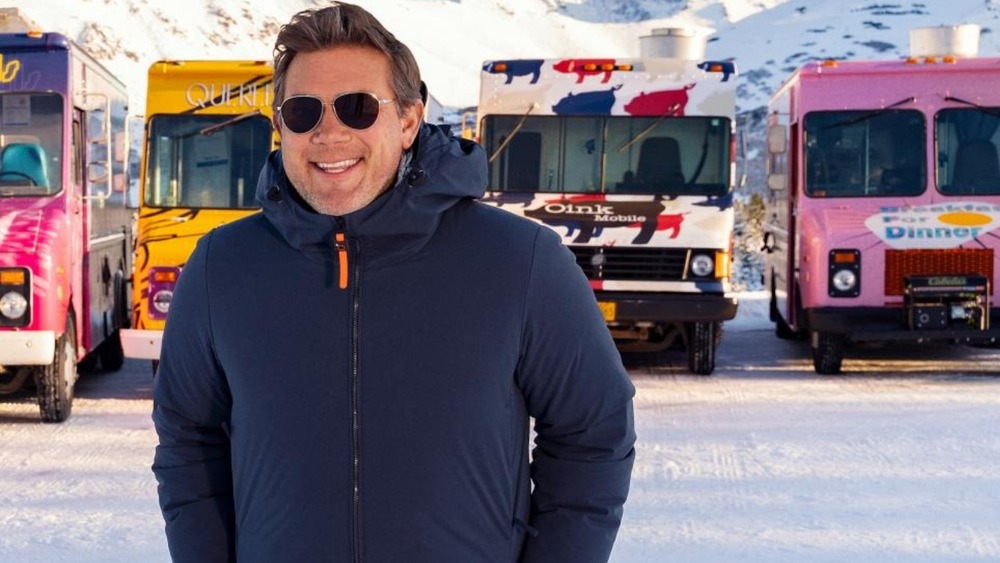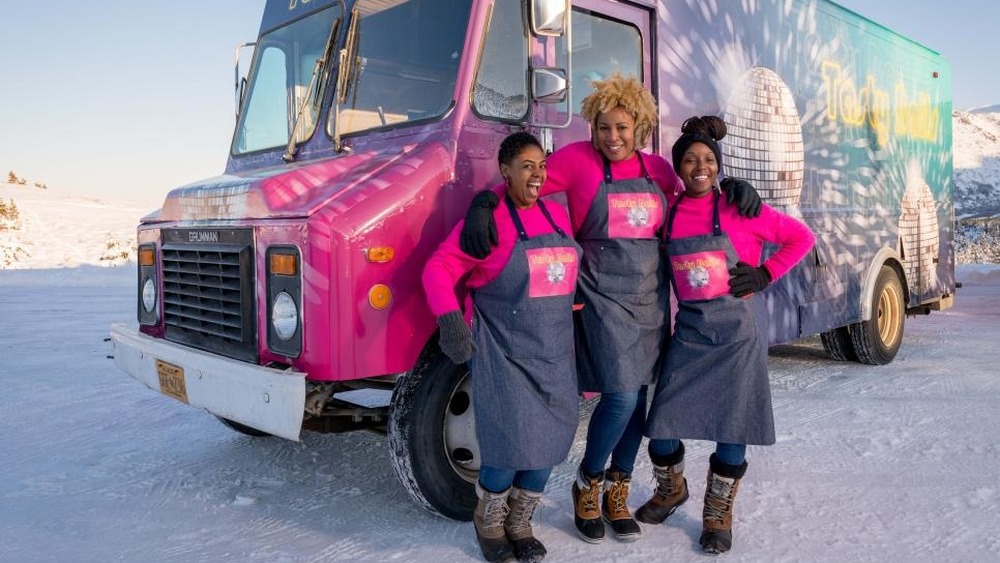The Real Reason Fans Are Upset About The Great Food Truck Race: Alaska
First there was food TV, which started out as rather staid public television cooking demos from the likes of James Beard and Graham Kerr, although admittedly Julia Child could be quite personable. Several decades later, along came reality TV as we now know it, with early shows such as Survivor creating the by-now cliched genre of randomly-selected (yet oddly telegenic) citizens pitted against nature in all its cruelty with nothing but an off-camera production team to sustain them in their struggles.
At some point, cooking shows got into the competitive spirit, pitting would-be chefs against one another in harsh environments such as Hell's Kitchen where they'd face down a wrathful Ramsey — perhaps not as life-threatening as man-eating bears or sharks, but still pretty scary. A decade ago, up popped a new kind of hybrid food competition/reality show, one meant to capitalize on the "moment" meals on wheels were (and are) having: The Great Food Truck Race.
While not a race per se, host Tyler Florence (via The New York Times) described it as "Cannonball Run with food trucks." The most recent season, however, has the crews setting up in a location many feel is too inhospitable to make for a fair food fight: the frozen tundra. As one Redditor posted in a thread about The Great Food Truck Race: Alaska, "I have no desire to watch people freeze to death. This isn't Survivor, or even Cutthroat Kitchen. I don't want to watch teams battle the elements."
Many feel the show has gone too far this time
Nearly all of the commenters on that Reddit thread agreed with the original poster, with one saying, "I think they should all get a do-over," and expressing horror about one of the competitors getting a frostbitten ear. Some felt that the teams were also being "set up to fail," what with trucks that seemed to be constantly breaking down, not to mention the fact that the town they're set up in evidently has no more than 600 residents. How could this possibly be enough people to support all three food trucks, even for a single weekend? As one fan put it, "I pretty much like all the teams but even the best truck can't sell if there isn't customers."
There were a few people, however, who felt that the choice of a remote town in Alaska might be due to it being more "COVID-friendly" — the smaller the crowds and the less chance of virus transmission. One also felt that it might be "a way to even the playing field with social media," while adding that the Survivor feel may possibly be intentional, with the producers knowingly providing "poor quality or reusing old trucks not fit for the elements." Well, we wish the competitors all the best with their ordeal. Whoever comes out on top this time around has well and truly earned that win!

